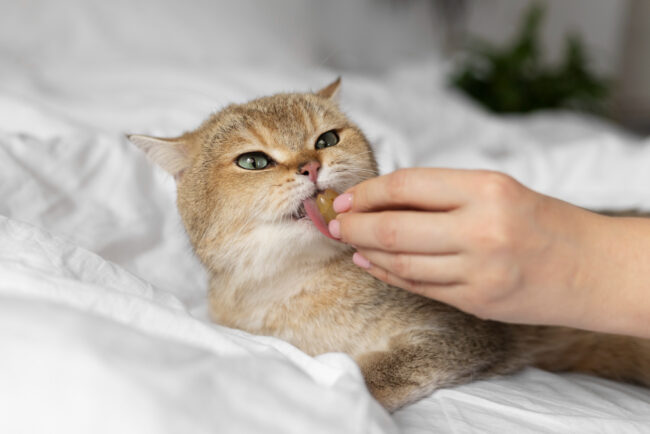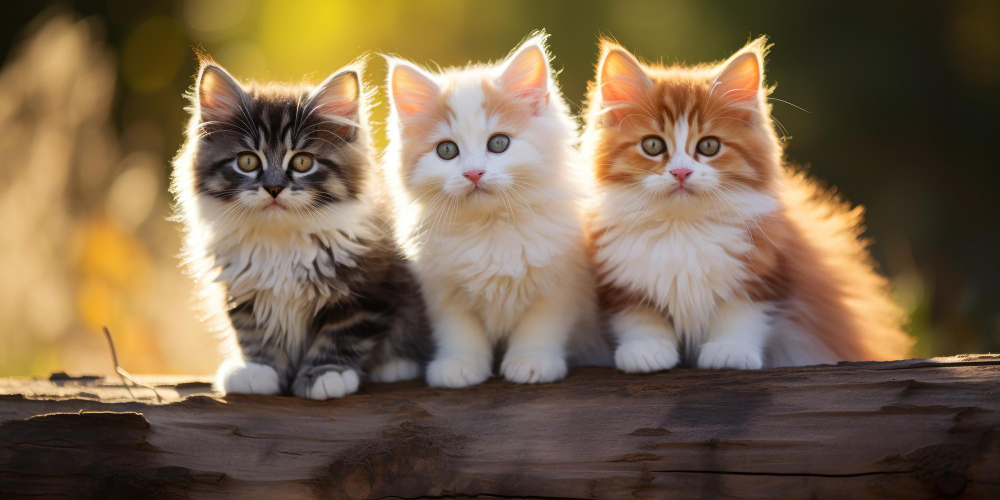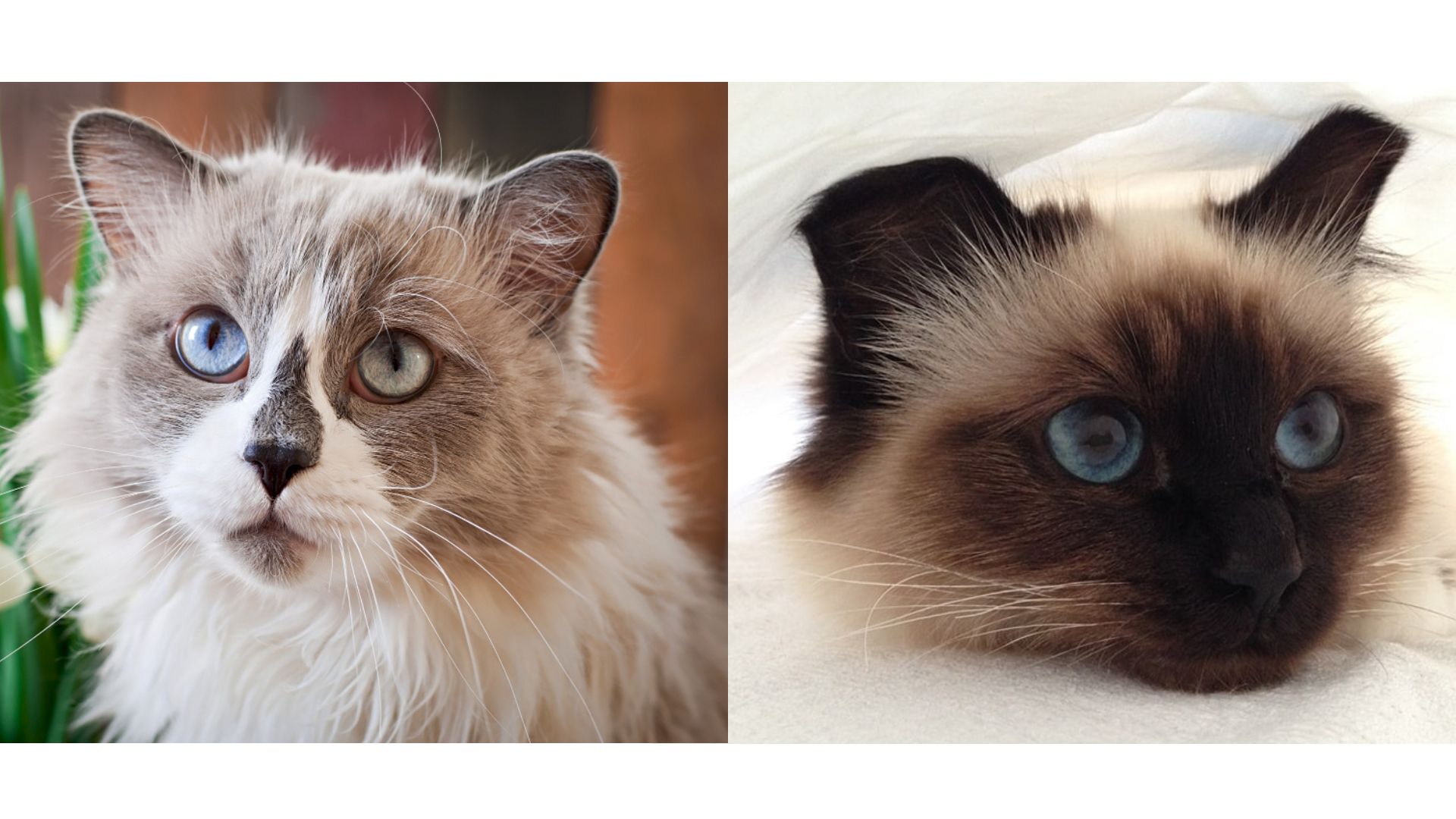Today, I’m going to be talking about the distinguished Maine Coon cat characteristics. These breathtaking creatures capture the hearts of feline enthusiasts around the globe.
If you’re a cat lover, you’re going to find out about a breed that stands out from the rest, the Maine Coon. With their lush manes and imposing stature, these cats are quite the stuff of legends, as countless myths surround their origins.
This isn’t just about their royal appearance; it’s also about the charming quirks that make Maine Coons beloved companions. Renowned not only for their distinctive looks but also for their endearing personalities, these cats offer more than just physical beauty.
In the coming sections, you’re going to learn about the full scope of Maine Coon cat characteristics, from the iconic tufts of fur on their ears to their gentle yet playful disposition. Understanding these traits will shed light on why Maine Coons have developed such a devoted following.
Maine Coon Physical Characteristics
Size and Weight
Maine Coons are renowned for their large stature, often surprising even experienced cat owners. Adult males typically weigh between 13-18 pounds, while females range from 8-12 pounds. However, some Maine Coons can grow even larger, with some males reaching up to 25 pounds. Their size is not just about weight; they also have a robust and muscular build, with long bodies and substantial bone structure.
Distinctive Features
One glance at a Maine Coon, and you’ll notice several standout features that set this breed apart:
Ears
The large, tufted ears of a Maine Coon are not just adorable; they serve a practical purpose in their native cold climate. These lynx-like tufts, known as “ear furnishings,” help keep their ears warm and protected from the harsh weather. The ears themselves are wide at the base and taper to a point, adding to their wild and majestic appearance.
Eyes
Maine Coons possess expressive, large eyes that come in a variety of colors, adding to their charismatic appearance. Their eyes can be green, gold, copper, or even blue, and some Maine Coons have odd-colored eyes, a trait particularly common in white Maine Coons. Their eyes are slightly oblique, giving them a wise and knowing look.
Coat
The thick, water-resistant coat of the Maine Coon is one of its most defining features, designed to withstand harsh New England winters. This semi-longhaired coat is silky and smooth, with a dense undercoat that provides insulation. The fur is shorter on the shoulders and longer on the stomach and britches, with a magnificent ruff around the neck that resembles a lion’s mane.
Color Variations
Maine Coons come in a wide array of colors and patterns, each as striking as the next. From solid colors like black, white, and blue to tabby patterns, tortoiseshell, and even colorpoint variations, there’s a Maine Coon to suit every aesthetic preference. The tabby pattern is the most common, with classic, mackerel, and spotted variations. Each coat pattern and color adds to the uniqueness and beauty of this breed.
Maine Coon Cat Behavior Characteristics
Gentle Giants
Despite their imposing size, Maine Coons are known for their gentle and friendly nature, making them excellent companions for families of all sizes. They are affectionate without being overly demanding, and they enjoy spending time with their human companions. Their gentle demeanor makes them particularly good with children and other pets.
Intelligence and Playfulness
Maine Coons are highly intelligent cats that retain their kitten-like playfulness well into adulthood. Their problem-solving skills and love for interactive toys keep their owners constantly entertained. They are known to play fetch, open doors, and even turn on faucets. Their curiosity and intelligence mean they need plenty of mental stimulation to keep them happy and engaged.
Social Nature
Unlike some cat breeds that prefer solitude, Maine Coons are notably social creatures. They enjoy being part of family activities and often form strong bonds with their human companions. They are known to follow their owners from room to room, always wanting to be involved in whatever is happening. Their social nature makes them excellent companions for those who spend a lot of time at home. They are one of the cat breeds that are good with dogs too, they are often described as “dog-like” due to their friendly and affectionate demeanor.
Vocalization
Maine Coons are known for their unique vocalizations, which range from soft chirps and trills to more conventional meows. Their ‘talking’ adds another layer to their charming personality. They are not as loud as some other breeds, but they do enjoy communicating with their owners. Their vocalizations are often described as sweet and melodic, adding to their endearing nature.
Care and Maintenance
Grooming Needs
While their long, luxurious coat is beautiful, it requires regular maintenance to keep it in top condition. We’ll discuss grooming techniques and frequency to keep your Maine Coon looking its best. Regular brushing, at least two to three times a week, is essential to prevent matting and tangles. During shedding seasons, more frequent grooming may be necessary. Bathing is not usually required, but occasional baths can help keep their coat clean and reduce shedding.
Dietary Requirements
Due to their large size, Maine Coons have specific nutritional needs. This section will cover dietary recommendations to keep your gentle giant healthy and thriving. A balanced diet rich in protein, healthy fats, and essential vitamins and minerals is crucial. Maine Coons may require more food than smaller breeds, so it’s important to monitor their weight and adjust their diet accordingly. Fresh water should always be available, and high-quality commercial cat food or a well-planned homemade diet can meet their nutritional needs.
Exercise and Play
Maine Coons are active cats that require regular exercise to maintain their health and happiness. We’ll explore various ways to keep your Maine Coon physically and mentally stimulated. Interactive toys, climbing trees, and puzzle feeders can provide both physical and mental exercise. Regular play sessions with their owners help strengthen the bond and keep them engaged. Providing a variety of toys and changing them regularly can prevent boredom.
Health Considerations
Like all purebred cats, Maine Coons are prone to certain health issues. We’ll discuss common health concerns and preventative measures to ensure your Maine Coon lives a long, healthy life. Common health issues include hip dysplasia, hypertrophic cardiomyopathy (HCM), and spinal muscular atrophy (SMA). Regular veterinary check-ups, a balanced diet, and maintaining a healthy weight can help prevent or manage these conditions. Genetic testing and responsible breeding practices can also reduce the risk of inherited diseases.
History and Origin
The Legend of the Maine Coon
The Maine Coon’s origins are shrouded in mystery and legend. We’ll explore some of the fascinating myths surrounding this breed’s beginnings. One popular legend suggests that Maine Coons are the result of domestic cats mating with raccoons, which is biologically impossible but adds to the breed’s mystique. Another tale involves Marie Antoinette’s cats being sent to America during the French Revolution, where they interbred with local cats.
Development of the Breed
From their humble beginnings as farm cats in New England to their rise in popularity as show cats, we’ll trace the Maine Coon’s journey to becoming one of America’s most beloved cat breeds. In the 19th century, Maine Coons were prized for their hunting skills and adaptability to harsh climates. They became popular in cat shows in the late 1800s, but their popularity waned with the introduction of exotic breeds. However, dedicated breeders revived interest in the Maine Coon, and today they are one of the most popular and recognizable breeds in the world.
Maine Coons in Popular Culture
Maine Coons have left their mark on popular culture, appearing in movies, books, and even as social media stars. We’ll highlight some famous Maine Coons and their impact on the breed’s popularity. For example, a Maine Coon named Pebbles appeared in the Harry Potter films as Mrs. Norris, the caretaker’s cat. Social media has also seen the rise of famous Maine Coons like “Stewie,” who held the record for the world’s longest cat, and “Samson,” known as the largest cat in New York City.
Choosing and Adopting a Maine Coon
For those considering adding a Maine Coon to their family, this section will provide valuable information on what to look for in a breeder, adoption options, and how to prepare your home for this majestic feline. When choosing a breeder, it’s important to look for one who prioritizes health, temperament, and responsible breeding practices. Adoption from shelters and rescue organizations is also a wonderful option. Preparing your home involves providing ample space, scratching posts, and a variety of toys to keep your Maine Coon entertained and comfortable.
Why Maine Coons Make Wonderful Companions
We’ll wrap up our exploration of Maine Coon characteristics by summarizing why this breed continues to capture the hearts of cat lovers worldwide, and what potential owners can expect from these magnificent felines. Maine Coons are not only beautiful and majestic but also loving, intelligent, and playful. Their gentle nature and social personality make them excellent companions for families, singles, and seniors alike. With proper care and attention, a Maine Coon can bring joy and companionship to any household.
Frequently Asked Questions (FAQ)
1. How long do Maine Coons live?
Maine Coons typically live between 12 to 15 years, though some can live even longer with proper care and regular veterinary check-ups.
2. Are Maine Coons good with children and other pets?
Yes, Maine Coons are known for their gentle and friendly nature, making them great companions for children and other pets. They are patient and tolerant, which makes them well-suited for family life.
3. Do Maine Coons require a lot of grooming?
Maine Coons have a thick, semi-longhaired coat that requires regular grooming to prevent matting and tangles. Brushing two to three times a week is usually sufficient, with more frequent grooming during shedding seasons.
4. Are Maine Coons indoor or outdoor cats?
While Maine Coons can adapt to both indoor and outdoor environments, many owners prefer to keep them indoors to protect them from potential dangers such as traffic, predators, and diseases. Providing plenty of indoor enrichment can keep them happy and stimulated.
5. What are common health issues in Maine Coons?
Common health issues in Maine Coons include hip dysplasia, hypertrophic cardiomyopathy (HCM), and spinal muscular atrophy (SMA). Regular veterinary care, genetic testing, and responsible breeding practices can help manage and prevent these conditions.
6. How much exercise do Maine Coons need?
Maine Coons are active cats that require regular exercise to maintain their health and happiness. Interactive toys, climbing trees, and regular play sessions with their owners can provide the necessary physical and mental stimulation.
7. Do Maine Coons get along with other cats?
Maine Coons are generally social and can get along well with other cats, especially if they are introduced properly. Their friendly and easygoing nature makes them good companions for multi-cat households.
8. How much do Maine Coons eat?
Due to their large size, Maine Coons may require more food than smaller breeds. It’s important to provide a balanced diet rich in protein and monitor their weight to avoid overfeeding. Consulting with a veterinarian can help determine the appropriate amount of food for your Maine Coon.
9. Are Maine Coons hypoallergenic?
Maine Coons are not considered hypoallergenic. They produce the same allergens as other cats, and their long fur can trap more dander. Regular grooming and cleaning can help reduce allergens in the home.
10. How can I find a reputable Maine Coon breeder?
Finding a reputable breeder involves researching and looking for breeders who prioritize health, temperament, and responsible breeding practices. Visiting the breeder, asking for health certificates, and speaking with other owners can provide valuable insights. Adoption from shelters and rescue organizations is also a wonderful option. In conclusion, Maine Coons are a remarkable breed with a rich history, distinctive physical characteristics, and a loving personality. Whether you’re a seasoned cat owner or considering your first feline companion, the Maine Coon is sure to bring joy, companionship, and endless fascination to your life.




